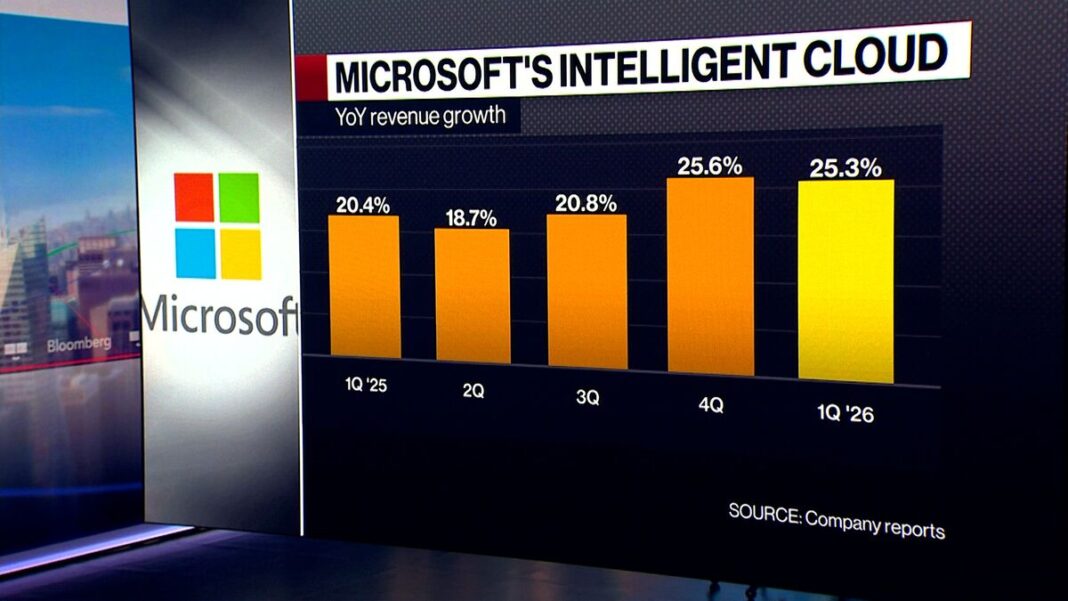Sheila Gulati: A Visionary Perspective on AI and Its Transformative Potential
Sheila Gulati, a prominent figure in the venture capital landscape and the founder and managing director of Tola Capital, has generated considerable discussion with her recent remarks on artificial intelligence (AI). In a conversation with Bloomberg’s Romaine Bostick and Katie Greifeld, Gulati articulated a compelling viewpoint that challenges the prevailing notion of an “AI bubble.” Instead, she posits that we are witnessing a fundamental societal shift that could reshape the very fabric of how industries operate.
Debunking the AI Bubble Myth
Gulati’s assertion that we are not in an AI bubble is predicated on the belief that the current advancements in AI technology are far-reaching and transformative. She draws parallels to the early days of cloud computing when skepticism was rampant. Similar concerns about overvaluation and the sustainability of cloud-centric business models were commonplace. However, history has shown that cloud technology persevered, evolving into an indispensable component of modern business infrastructure.
By framing AI in this light, Gulati urges industry stakeholders to move beyond speculative fears. She suggests that the advancements we see today are not mere fads driven by hype but rather integral components of business evolution that will redefine competitive landscapes across various sectors.
The Societal Shift Toward AI Integration
In her discussion, Gulati emphasizes that we are undergoing a broad societal shift that is driven by the integration of AI into daily operations. This transformation is not limited to tech startups; it extends to traditional industries such as agriculture, healthcare, finance, and manufacturing. With AI technologies simplifying complex processes and allowing for more data-driven decisions, organizations are harnessing this power to enhance efficiency and effectiveness.
Gulati illustrates how AI can automate mundane tasks, enabling employees to focus on higher-value activities. This shift may lead to greater job satisfaction, as individuals can engage in more creative and strategic work, ultimately driving innovation within their companies.
Historical Context: The Cloud Computing Era
To further substantiate her position, Gulati references the evolution of cloud computing as a significant analog. At its inception, cloud technology faced skepticism, much like AI today. Doubts about its scalability and security were prevalent, and many were hesitant to adopt cloud solutions. However, as businesses began to realize the benefits—reduced operational costs, increased flexibility, and enhanced collaboration—cloud computing rapidly gained traction.
This historical perspective serves not only as a testament to the potential of new technologies but also as a cautionary tale for investors who may prematurely dismiss emerging trends. Gulati’s commentary encourages a more nuanced understanding of technological adoption, urging stakeholders to look beyond initial alarm and instead embrace the long-term opportunities.
The Future Landscape of Business Innovation
Looking ahead, Gulati is optimistic about the trajectory of AI. She believes that as organizations become more comfortable with these technologies, we will witness an explosion of innovation that will disrupt traditional business models. Companies that successfully integrate AI-driven solutions into their operations will likely emerge as leaders in their respective industries.
Moreover, Gulati’s perspective highlights the need for ongoing investment in AI research and development. This includes not just funding startups but also investing in training and education to prepare the workforce for the changes brought about by AI. By fostering an environment that encourages experimentation and learning, businesses can better position themselves to take advantage of the AI revolution.
Addressing Ethical Considerations
While Gulati is enthusiastic about AI’s potential, she acknowledges the ethical implications that come with these advancements. Concerns about privacy, bias, and job displacement are important topics that warrant thoughtful discussion. As AI becomes increasingly integrated into the workplace, it is crucial for organizations to prioritize ethical considerations and establish guidelines to ensure responsible AI usage.
By proactively addressing these issues, companies can mitigate risks and build trust with consumers. Gulati emphasizes that transparency and accountability will be vital in navigating the complexities associated with AI deployment.
Conclusion: Embracing the AI Future
Sheila Gulati’s insights on the AI landscape offer a refreshing perspective that challenges the prevalent narrative of an impending bubble. By likening the current phase of AI development to the early days of cloud computing, she reinforces the idea that we are on the brink of a significant societal shift. Her views encourage investors, businesses, and individuals to embrace AI as a transformative force, catalyzing innovation and reimagining the future of work. Through thoughtful integration and ethical consideration, AI has the potential to unlock unprecedented opportunities across various sectors.



